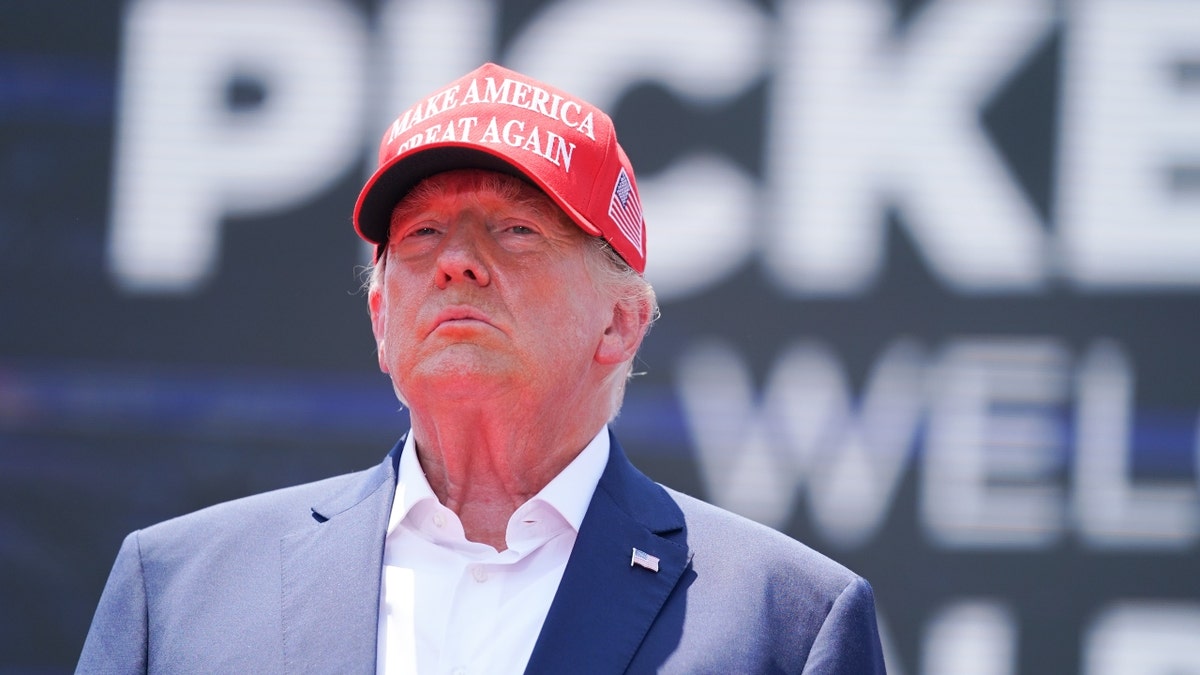
Former President Trump’s commanding lead in polls can make him seem like the inevitable Republican nominee. Voters could also be forgiven for thinking a general election race with the same candidates will lead to the same outcome.
Still, there are a few real pathways for another Republican to take advantage of the primary calendar and give Trump a run for his money.
And while it’s possible Joe Biden will win another close general election, Democrats have good reason to be nervous about 2024, even if Trump is the nominee.
Our advice for a shrewd bettor: Take the odds and bet on the horse named “Iowa Silver,” and don’t believe the conventional wisdom that makes Trump a “sure loser.”
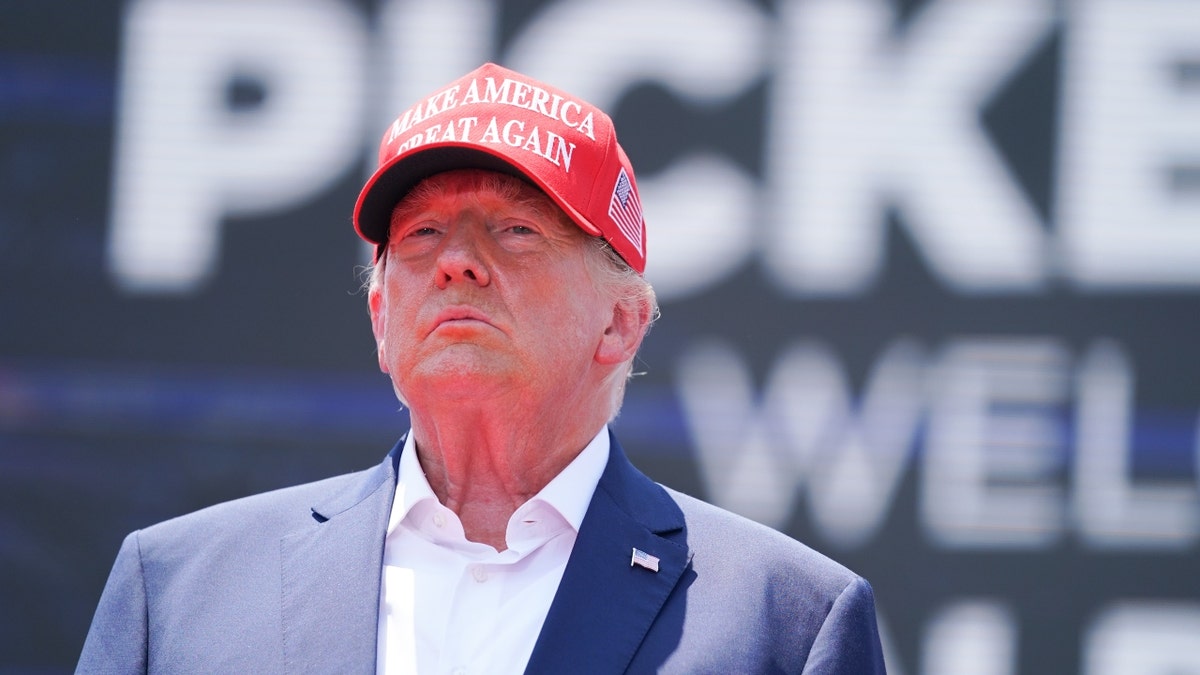
The most recent Fox poll has Trump at 46% support. (Sean Rayford)
Primaries: a Trump nomination is very likely but not a sure thing
Iowa Republicans are about 12 weeks away from their caucus, which is still the first stop on the road to the nomination.
The most recent Fox poll in that state has Trump at 46%, with a 31-point buffer between him and any of his rivals. If the caucus were held today, Trump would almost certainly win the most delegates.
But let’s state the obvious: Someone will finish second in Iowa. Yes, they say in the Olympics “silver may be silver, but it is still second.” But it could easily give that individual momentum to attract Republicans who are not sold on a third Trump nomination and are looking for a candidate to consolidate the field.
That person — “Iowa Silver” — then heads into an early primary calendar that might give the candidate an opportunity to turn the race into a challenge for the frontrunner.
- How the calendar could help “Iowa Silver”: Well, the New Hampshire primary is shortly thereafter. Republicans in the state are less supportive of Trump than Republicans nationally and, moreover, independents can vote in the New Hampshire primary. And the state is led by Gov. Chris Sununu, who has made his opposition to Trump known and is the scion of a state political dynasty known for its ability to bring voters to the polls. Sununu has made clear his interest in endorsing someone other than Trump. It might be hard to win a bet on who Iowa Silver will be, but you can be certain that Sununu will take a hard look at endorsing him or her.
- Additionally, the field will narrow: Expect candidates to start dropping out. As candidates exit the race, those remaining see higher levels of support.
- “Iowa Silver” will get increased media attention: The second-place candidate is, by default, the biggest threat to Trump, generating significant media attention, just as the greater public begins to focus on the race.
- …and more donor support: Many big donors are focused on trying to find the “Trump alternative.” Some have even tried to recruit other candidates into the field. Expect them to quickly start taking calls from Iowa Silver.
Yes, “Iowa Silver” is likely to be a distant second. That might matter, but on the other hand, New Hampshire voters have a history of giving the second-place Iowa finisher a solid look. In 1984, Senator Gary Hart came in second in Iowa with only 16.5% of Iowa caucus support, a distant second to former Vice President Walter Mondale, who got 49% of caucus attenders. Eight days later, Hart humiliated Mondale in the New Hampshire primary by almost 10 points.
If these factors play out, the leading alternative candidate will get more delegates than current polling suggests, and the overall race will be more competitive than the polling suggests.
CHRISTIE PLEDGES TO CONFRONT TRUMP ‘FACE-TO-FACE’ AS GOP PRESIDENTIAL LONG SHOT TARGETS FRONTRUNNER
Still, once we reach Super Tuesday, the shape of the race will morph again, likely benefiting Trump. Many states that night award all delegates to the majority vote winner and/or require candidates to reach a high threshold to win any delegates. That makes it harder for a challenger to take down the frontrunner.
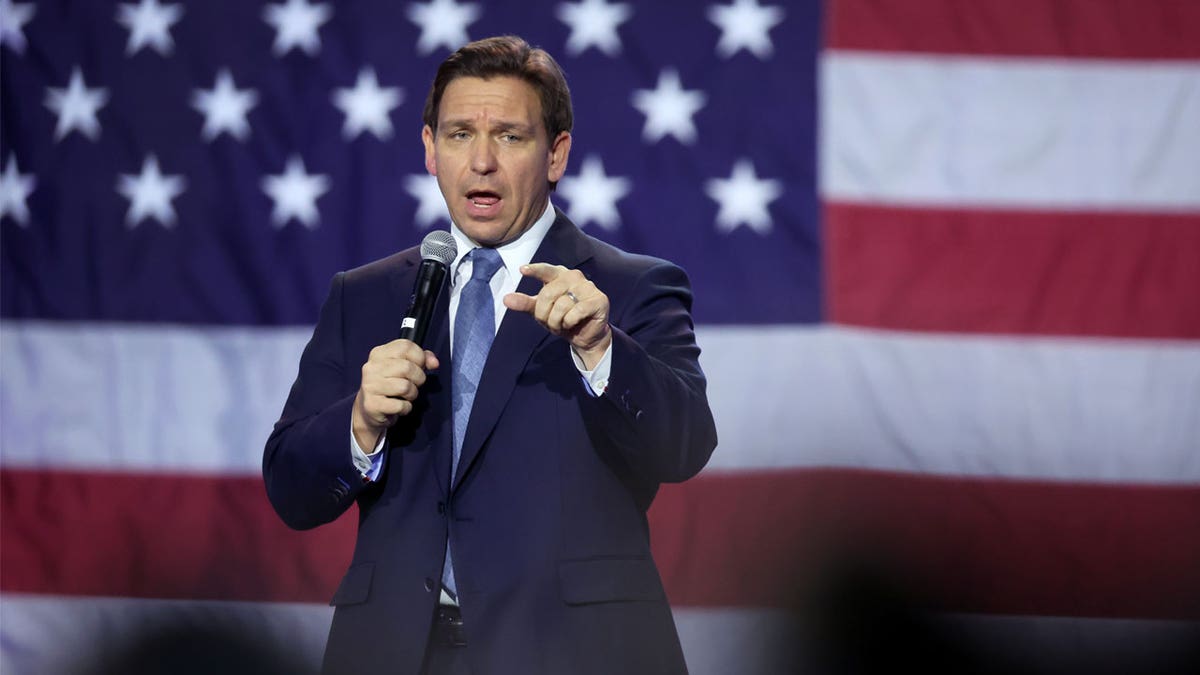
While Trump maintains a lead, polling shows Florida Gov. Ron DeSantis as the No. 2 presidential primary candidate. (Scott Olson)
So, for the overall race to become competitive, a leading alternative would need to emerge after Iowa (Jan. 15) and by Super Tuesday (March 4).
Today, polling points to Ron DeSantis or Nikki Haley as the second-place candidate. Support for DeSantis has fallen, but he remains in second place in national — and Iowa — polls.
Haley is making gains, especially in New Hampshire, but also in Iowa.
Haley benefits more from the primary calendar since South Carolina is also an early state. She gets 18% there in the latest Fox survey, which is the most support of any non-Trump candidate in any recent national or state poll. It’s still an uphill climb because South Carolina is also a winner-take-all state, but she does have a hometown advantage.
Scott is also “all in” on the state.
This is just one scenario. Trump has a commanding polling lead. The most likely outcome is that he will win the nomination.
But keep your eye on the calendar and on whether “Iowa Silver” can take advantage of second place.
General election: A Biden vs. Trump rematch could be highly competitive, and Trump could win
If there is a rematch between Biden and Trump, it won’t necessarily lead to the same outcome as the 2020 election.
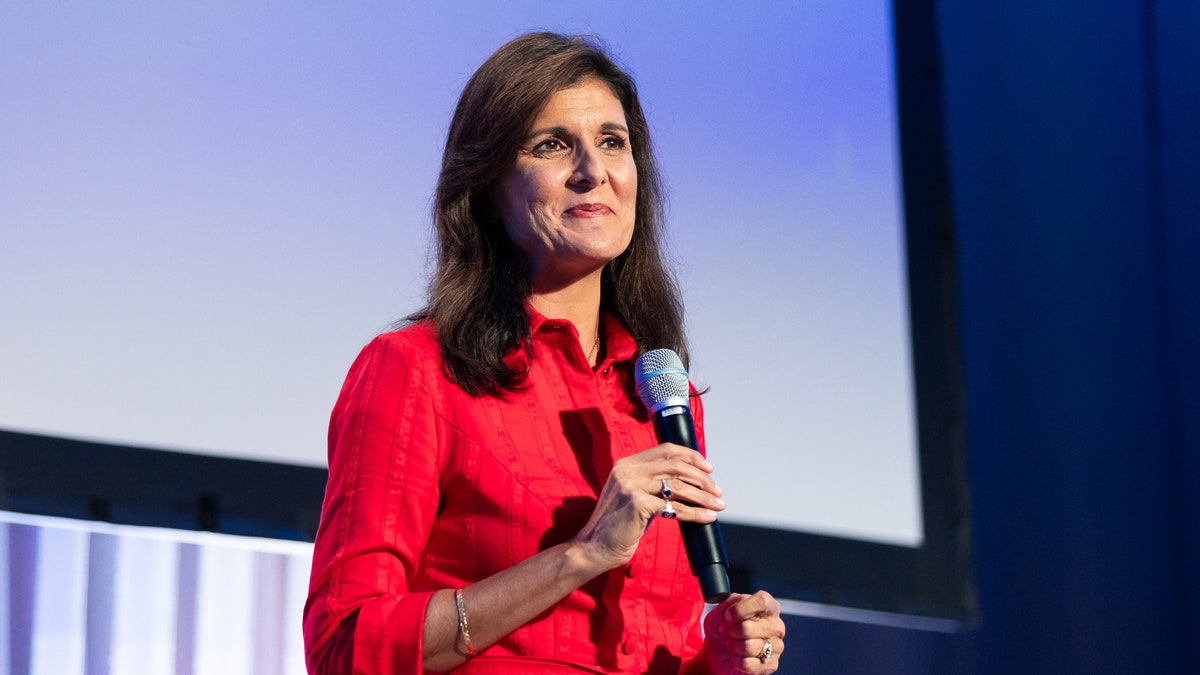
GOP candidate Nikki Haley (Joshua Comins)
Biden eked out a victory in that race. The average margin in the three closest states — Arizona, Georgia and Wisconsin — was about 14,000 votes. Had he lost all three, there would have been a tie in the electoral college, and a loss in those same states today would have meant losing the election outright (thanks to electoral college reapportionment).
This gives the incumbent very little wiggle room in 2024.
Head-to-head polling averages put support for Trump and Biden at about 45 points each. That is mostly a base party vote. In other words, voters who will always support the Democratic or Republican candidate.
JOE BIDEN BLUNTLY ASKED ‘ARE YOU SURE YOU WANT TO RUN AGAIN’ IN ‘60 MINUTES’ INTERVIEW
That leaves roughly 10 points of undecided vote. Where those voters go will depend on the issues, many of which are unique to 2024. Some examples:
Dem fears:
- Biden is four years older, and voters have noticed. This also puts a spotlight on the relatively unpopular Harris.
- Voters are giving low marks to Biden on the economy and immigration.
- Support for aid to Ukraine is falling, and, especially in light of the current war between Israel and Hamas, there is likely to be a debate on U.S. involvement in both wars, especially Ukraine
- Donald Trump has proven he can turn out rural and exurban voters, who can be decisive in the battleground states of Pennsylvania and Wisconsin
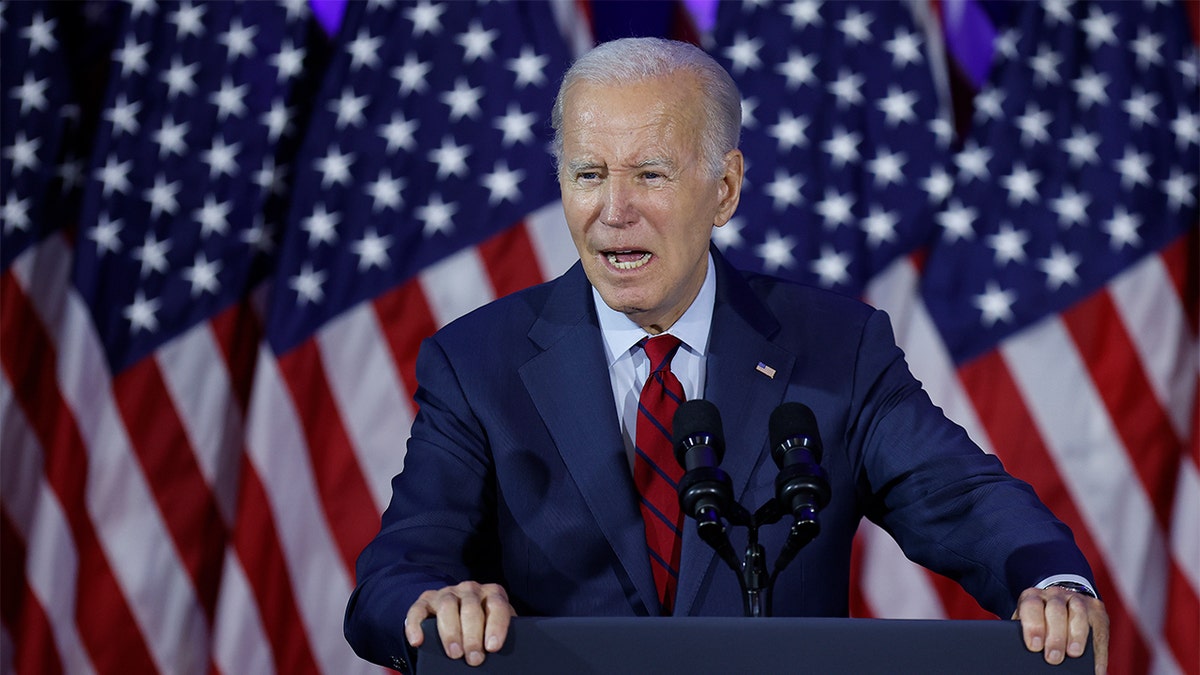
Voters are giving low marks to President Biden on the economy and immigration. (Chip Somodevilla)
GOP fears:
- Trump has not appeared on a ballot since 2020; he is now under multiple indictments for his post-election actions and may have to appear in a televised criminal trial in Georgia before the next election.
- Abortion is a liability, especially in Arizona, where a constitutional measure is likely to appear on the ballot.
A non-Trump nomination would be a game changer. It would likely reduce turnout for both parties. It could also put more moderate voters in play for the GOP.
There are many other unknowns. The threat of war, impact of the Trump trials or a Biden health scare are top of mind.
All of this could add up to a vastly different outcome in 2024, ranging from a comfortable Biden victory to a highly competitive race that Trump wins.
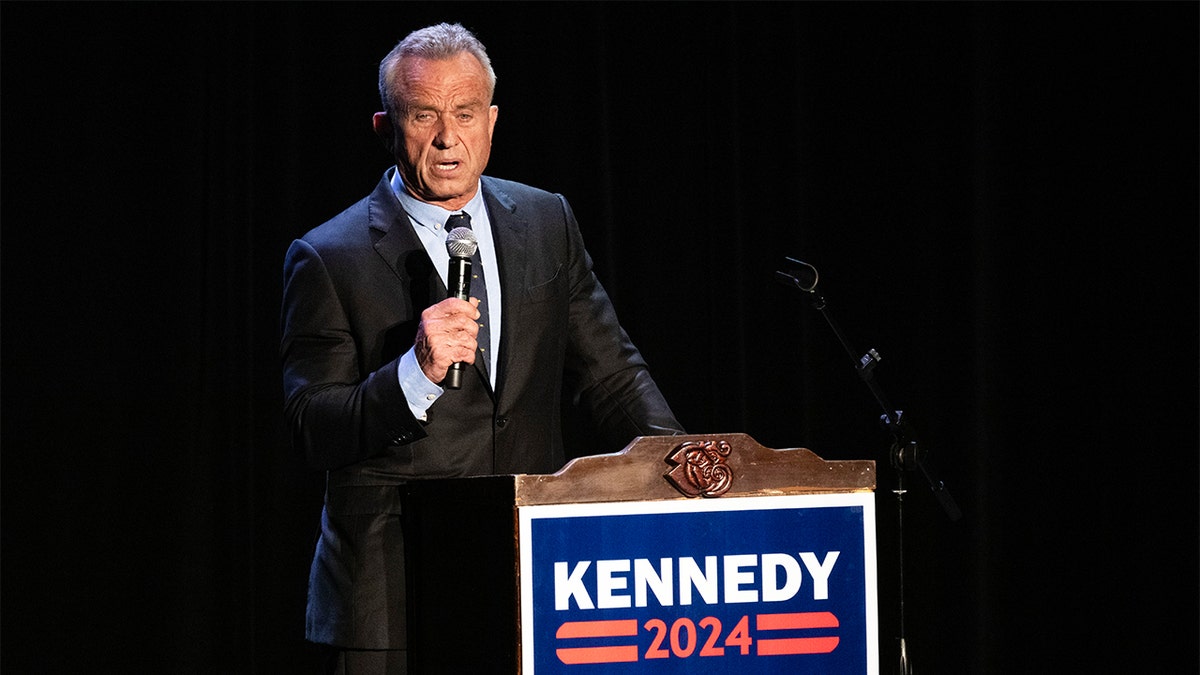
Presidential candidate Robert F. Kennedy Jr. recently announced he would be launching an independent run for president after initially jumping into the Democratic race. (Hans Gutknecht)
Role of third parties
There are three nascent third-party efforts. Based on polling and their messaging, we have some idea of who these candidates appeal to:
CLICK HERE TO GET THE FOX NEWS APP
- Robert F Kennedy Jr.’s anti-vaccine and generally anti-elite message is most likely to resonate with right-leaning libertarians and independents who would prefer not to vote for Trump. That’s why, in a recent Suffolk/USA Today poll, his 13% of support comes from voters who by 2-1 say they would otherwise support the probable GOP nominee.
- Cornel West, a progressive philosopher and political activist, is fighting for a sliver of far-left vote. He would pull some votes from Biden, but at 4% total support in the same Suffolk poll, he appears to be less of a liability to Biden than RFK is to Trump.
- No Labels is targeting moderates and could pick off some of the suburban voters who got Biden over the line in 2020. Much of it depends on the candidate.








